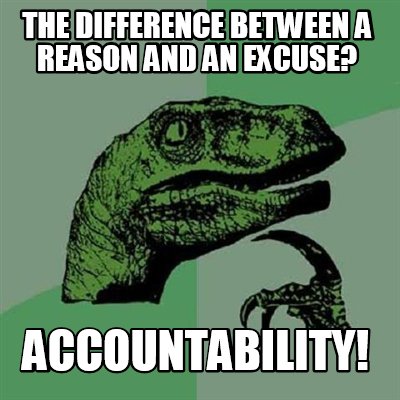As the world evolves and younger generations enter the workforce, leaders also need to stay relevant if they aim to inspire and attract the best talent.
It’s amazing to see today’s leaders starting to bring diversity to the table and start to apply different facets of what it means to be a leader.
When we think of the leadership in the past it you can almost stereotype it:
- White male in his 50’s, drinks whiskey, likes to play golf and smoke cigars
- It was all about power and power circles
- Controls the team by fear and authoritarianism
- They know best / arrogant
- Workaholic
- Loves micromanagement
I’m not saying they were not good examples of leadership in the past, there were. But, the world has moved on quite a lot, and if you have any hope to attract talent, authority alone won’t do. New generations care about the vision, what they are contributing for, and they need to feel they are trusted and their voice matters.
So let’s jump in into what I think are the most important skills of today’s / tomorrow’s leaders.
Agile
Yes I know I love agile, and I really do. But more than just a tool for project management I see it as a mindset. As a leader you need to adapt really fast and be ready to repivot again your ideas. Fail fast, learn even faster! And it’s not even just about failure, you might be doing well right now, but you need to think about what will work tomorrow, and sometimes you might need to take 1 step back to be able to move 3 steps forward. Like parents with young children, what worked today might not work tomorrow. You can’t ever be stuck into ways of working. I’m sorry Mandalorian, but there is “no way”. The way is many ways that you don’t even know are there. You have to be willing to try and see what works.
Communication
Not only you need to have a vision of where you want to be (yourself as a leader and how you see the team / company), but you need to be able to communicate it. I just can’t see how a leader with a good vision can be a great leader if he’s unable to communicate it down the chain. It’s the troops on the ground that will make it or break it unless you’re a company of one. I see so many great ideas dying at the beach because they can’t be articulated in a way that everyone understands what it means for them. It might be obvious to the C-suite, but is it clear what it means to every single employee? As I’ve said, younger generations need to buy into the vision, if they don’t, they will jump out to where they will. (I wrote about it here).
Empathy
I’ve said it again and again and I will say it once more. Empathy is key. For the time being at least, we are dealing with humans, people with lives outside work (yes I know, it’s possible), and unless you have the ability to walk in someone’s shoes and try to understand what your employees might be feeling or how they might perceive your ideas, you won’t go far. The “just do as I say because I say so” era is gone. Yes gone. You need to show to them you are human if you want them to follow you and help you with your vision. (I wrote about it here)
Seeks diversity
In the past the “boss” had to be perceived as the most clever person in the room, and they would unconsciously surround themselves of people who thought like them and said yes to every idea – without any challenge. This was linked to the leading by fear, so there was no incentive of calling out a bad idea. Nether less to say this will jeopardize any ideas of growth. You want to surround yourself of people who are smarter than you and bring a completely different angle to the table, a different idea. You also want do avoid any “yes-sir”. You want to seek different views to then measure them up and understand what could work. Also, you want the surrounding people to challenge you if your idea has any flaws. If there are better ways of doing things, you want to have people around you that will point you in the right direction. If everyone thinks like you, you will just get ideas that you can reach on your own.
Active listeners
For some reason there is the perception that leaders have to be extrovert and talk a lot. But if coms are important, being active listeners is even more so. You need to be aware of what’s going on around you, at all levels of the organization. But unless you’re an Alexa, you can’t be everywhere and know everything, so you need to be able to listen to those you interact with. Not just being able to listen to what they are saying, but on why they are saying and what’s between the lines. The ability to pause and actively listening is one of the most powerful tools a leader can possess, for only then he will be able to have a wider view on anything impacting the company both internally and externally. Don’t forget, it’s the troops on the ground that ultimately interact with clients, that see what’s working and what’s a total failure. Only by listening and observing without judgment you’ll be able to gather insights on any steps that need to be taken next and re-pivot as per my point 1.

Always learning, always thinking
My final point is about keeping an open mind and constantly be willing to learn. This is achieved by listening to others, by seeking formal training in any new technology / processes or by reading books. But in order to consolidate all these insights and knowledge, I would say it’s critical to have some thinking time. Not because you did something wrong like we tell the kids, but because the brain needs time to consolidate all the information. Blocking time to just sit down and absorb all the information you’ve collected on a daily basis is fundamental. It’s very easy to just get stuck on the busy-wheel, but you must carve out time to think and define what you need to learn next.
Accountability
Ok, I lied, there’s one more point. Accountability. It’s very easy to take accountability for success, but it’s crucial to take accountability for any failure. Great leaders will recognize what went wrong – as opposed to blame someone else or some other team – and will learn from it. Everyone should incorporate accountability in their ways of working, as it is a powerful tool to build trust. In fact, it was accountability that made me start this blog all these years ago (the one to be blamed), so couldn’t finish the list without it.


Pingback: Killing flexible working? | FYI, you're TBB